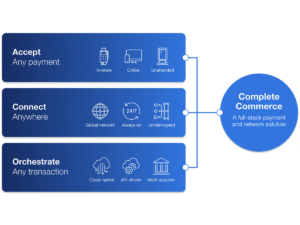There’s a good chance you will have already heard about a version of the notorious ‘tech support’ scam as they have been around for a while. But, during recent months, we have noticed there has been a resurgence of the scam and it is becoming increasingly common. Worryingly, scammers are constantly evolving the scheme which can make it hard to identify. There are many versions of this scam to look out for and it could be in the form of texts, robocalls, emails or computer alerts. We have broken down the top three tech support scams to be aware of.
- Remote Access
One way a scammer can gain control of a computer is through remote access. This allows them to control a device without physically sitting in front of it (scary, right?).
It often works by a scammer calling you, claiming that you requested a computer diagnosis and asking for remote access. They will often claim there is an issue when there isn’t one. The fraudster will then appear to fix the ‘problem’, but they are actually doing nothing. For example, they might just change a meaningless setting.
After they appear to fix the issue, this is when the real problem starts as they will then demand payment. The fee may be in the form of a wire transfer, gift card, or possibly cryptocurrency. It is also a possibility that they may use the computer to grab personal information or install ransomware.
Always remember that a legitimate customer support agent would never call a customer first, so it is a huge red flag for this to happen.
- Pop Ups
Another scam to be aware of is fake viruses popping up while you’re using your computer. This can be frightening, as they are unexpected and usually provide almost no information about the problem.
The pop up will likely provide a phone number to call but do not call that number. The best option is to update your computer’s security software and run a scan to detect any legitimate problems. You can also contact the manufacturer’s tech support directly.
- Spoofing
Some criminals may pose as legitimate companies, such as Amazon or Microsoft, to appear more believable. They may even go so far as to spoof the actual tech support lines of these companies.
Spoofing allows them to display the tech support number as the caller ID, which disguises the real caller. It is important to know that tech support agents will not reach out to you unless you’ve submitted an inquiry, since they have no knowledge of issues on your device without notification.
If you believe you are the victim of a scam, you can report it to your local police, state Attorney General’s office and the FTC.
Call-blocking apps, including those powered by TNS Call Guardian®, are also a great resource for reporting and blocking unwanted robocalls. Stay vigilant, share information about scams with others and be sure to check out our monthly Scam of the Month page updates.
John Haraburda is Director of Product Management at TNS with specific responsibility for TNS’ Communications Market solutions.
Call Guardian is a registered trademark of Transaction Network Services, Inc.






